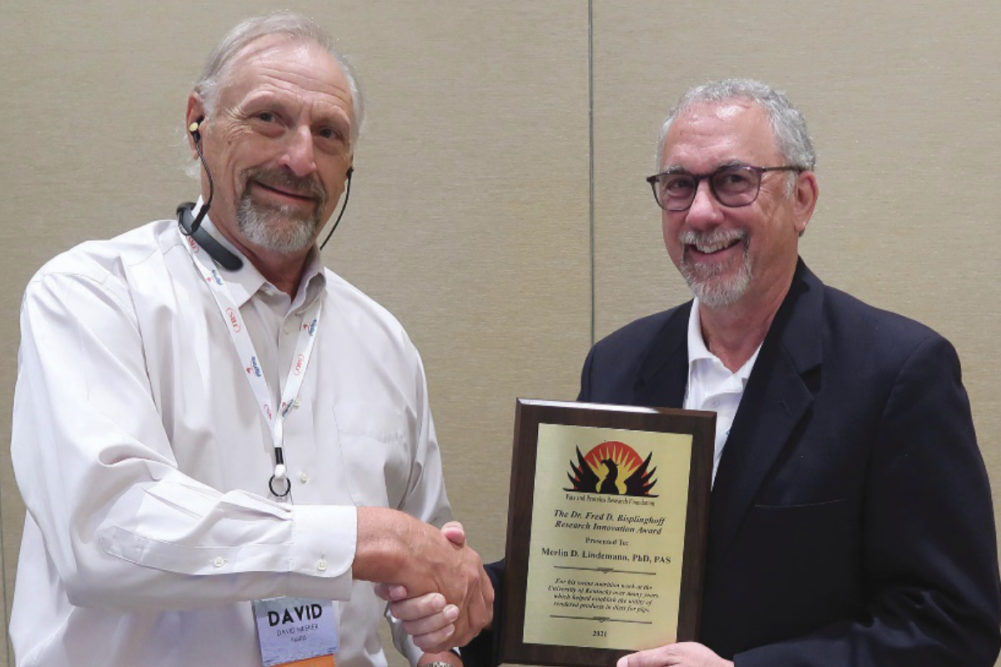ALEXANDRIA, VIRGINIA, US — Merlin D. Lindemann received the Bisplinghoff Research Innovation Award from the Fats and Proteins Research Foundation (FPRF) for his years of research on the use of rendered products in swine nutrition.
His work has been instrumental in creating the value of rendered products in pig diets, FPRF said. He is a professor of animal and food sciences at the University of Kentucky.
The award was presented to Lindemann by Dr. David Meeker, North American Renderers Association’s (NARA) senior vice president of scientific services, and FPRF’s director of research, during NARA’s 2021 Convention on Oct. 18-23, in Greensboro, Georgia, US.
In his recent research on rendered products, Dr. Lindemann found that feeding poultry byproduct meal or meat and bone meal in up to 5% of the diet of nursery or grower pigs provided important minerals, positive economical options, and were preferred by pigs when started in the nursery diets immediately at weaning.
Lindemann’s research in minerals has involved determining the nutrient needs of pigs and defining the bioavailability of minerals from various sources. His work has involved multi-state and international projects. Lindemann has examined the impact of fiber, water source, enzymes, and antibiotics on mineral availability. His notable work with chromium resulted in its regulatory approval for use in feeds.
Lindemann received a bachelor’s of science degree and doctorate from the University of Minnesota. He led the swine research program at Virginia Polytechnic Institute and State University’s Tidewater Station for 13 years before joining the Animal Sciences faculty at the University of Kentucky. Lindemann is active in the American Society of Animal Science and other professional organizations and also has worked as an associate editor for the Journal of Animal Science.
The Bisplinghoff Innovation Award was founded in 2015 in honor of former FPRF President Dr. Fred Bisplinghoff. It is awarded annually to an FPRF grant recipient who has done outstanding research for the rendering industry that made a substantial contribution to current knowledge, increased the use of rendered products, or developed improvements in operations, product quality, and safety.






